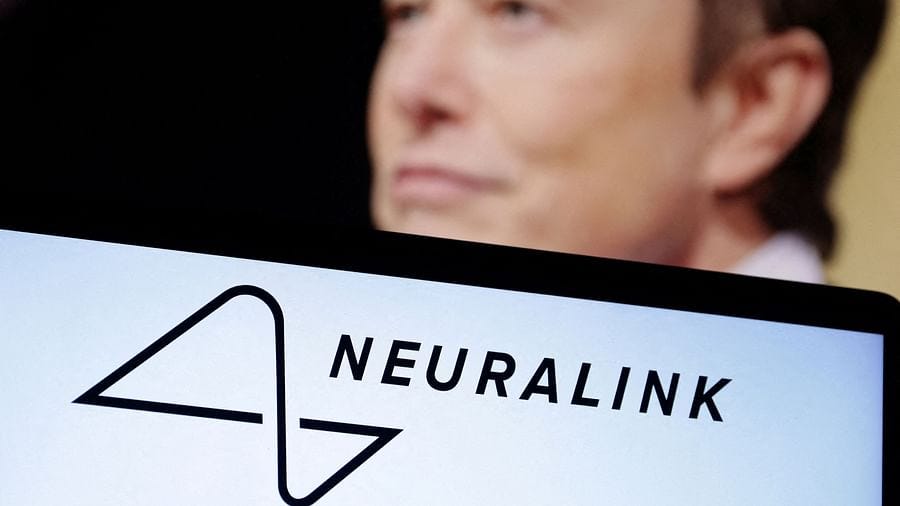Neuralink Achieves Breakthrough: First Human Controls Computer Mouse Through Thought
Elon Musk's Neuralink: Pioneering the Future of Human-Computer Interfaces
Neuralink's Breakthrough: Charting New Frontiers for those Facing ‘Incurable’ Conditions
In an unprecedented advancement for neuroscience and technology, Elon Musk's Neuralink has unveiled a monumental achievement: the inaugural human patient, equipped with the company's advanced brain chip, has successfully managed to control a computer mouse using nothing but their thoughts. This milestone accentuates Neuralink's dedication to revolutionizing human capabilities, including movement, sight, memory, and intelligence, by forging direct connections between the brain and computers. Particularly for individuals with paralysis, including those who are paraplegic, this development opens new doors to independence and interaction with the digital world. Elon Musk had previously hinted at this visionary objective in September 2023, a topic we explored in a detailed article at the time, promising a transformative future for people with mobility challenges.
Empowering Mobility and Autonomy
This latest innovation from Neuralink not only exemplifies the potential for technological interventions to restore lost functions but also highlights the broader implications for enhancing human cognitive and physical abilities. By integrating sophisticated brain-computer interfaces, Neuralink is paving the way for a new era where the barriers between human intention and digital execution begin to blur, offering hope and newfound capabilities to those who have been most in need.
Key Developments
Successful Patient Recovery: The inaugural human recipient of Neuralink's brain chip, following the surgical procedure in January, has fully recuperated. Musk shared this exciting news during an X Spaces event, highlighting the patient's ability to navigate a computer screen with thought alone, without experiencing any adverse effects.
Technological Advancements: Neuralink's technology, which bridges the human brain with computers, represents a significant milestone. The surgery, performed with the aid of Neuralink's robotic system, showcases the potential to assist individuals with paralysis in regaining lost functions by enabling them to control digital devices through their thoughts.
Future Aspirations: Beyond the current capabilities, Neuralink aims to expand its technology to allow for more complex interactions with computers, such as performing multiple actions simultaneously. The ultimate goal is to provide a rich interface that goes beyond basic commands, enhancing user experience and functionality.
Elon Musk's Vision for Neuralink
Musk envisions a future where Neuralink's technology not only restores lost functions for people with disabilities but also enhances cognitive abilities for the broader population. With products like "Telepathy" in development, Musk aims to enable control over phones and computers through thought, and even restore sight to the blind. However, widespread application of such technology, especially for enhancement purposes, faces regulatory hurdles and ethical considerations, underscoring the need for cautious and responsible advancement.
Expanding Musk's Technological ‘Empire’: Privacy and Ethical Considerations
Neuralink's pioneering strides form a key component of Elon Musk's extensive innovation ecosystem, often referred to by some analysts as an empire, sparking debates around privacy and data security. Musk's ventures, such as Tesla, known for its electric and autonomous vehicles, and Starlink, offering satellite-based high-speed internet, are notorious for amassing substantial personal data, including location details. As Neuralink advances, intertwining cutting-edge brain technology with everyday human interaction, it prompts critical discussions on the protection of personal information and the moral implications of such technological advancements.
Skepticism and Valuation
Despite the enthusiasm surrounding Neuralink's progress, voices of caution and skepticism persist. Notably, Meta CEO Mark Zuckerberg has expressed reservations about the current state of neural interface technology, emphasizing the need for maturity before widespread adoption. Meanwhile, Musk's ventures continue to influence his financial standing, with Forbes estimating his net worth at $205.2 billion, making him one of the world's wealthiest individuals.
Neuralink's Place in Medical Innovation
Neuralink's breakthroughs signify a new era of medical miracles, where technology and AI are used to tackle traditional medical challenges from novel perspectives. By harnessing the power of wireless tech and AI, Neuralink is paving the way for revolutionary treatments and enhancements, promising a future where the boundaries between human capability and technology blur, offering hope and new possibilities for individuals around the world.
As Neuralink and similar technologies evolve, the potential to transform lives through direct interaction with digital devices opens up unprecedented opportunities for human enhancement and the treatment of neurological conditions. Yet, the journey ahead requires a balanced approach, where innovation is matched with ethical responsibility and a commitment to safeguarding personal privacy and security.





